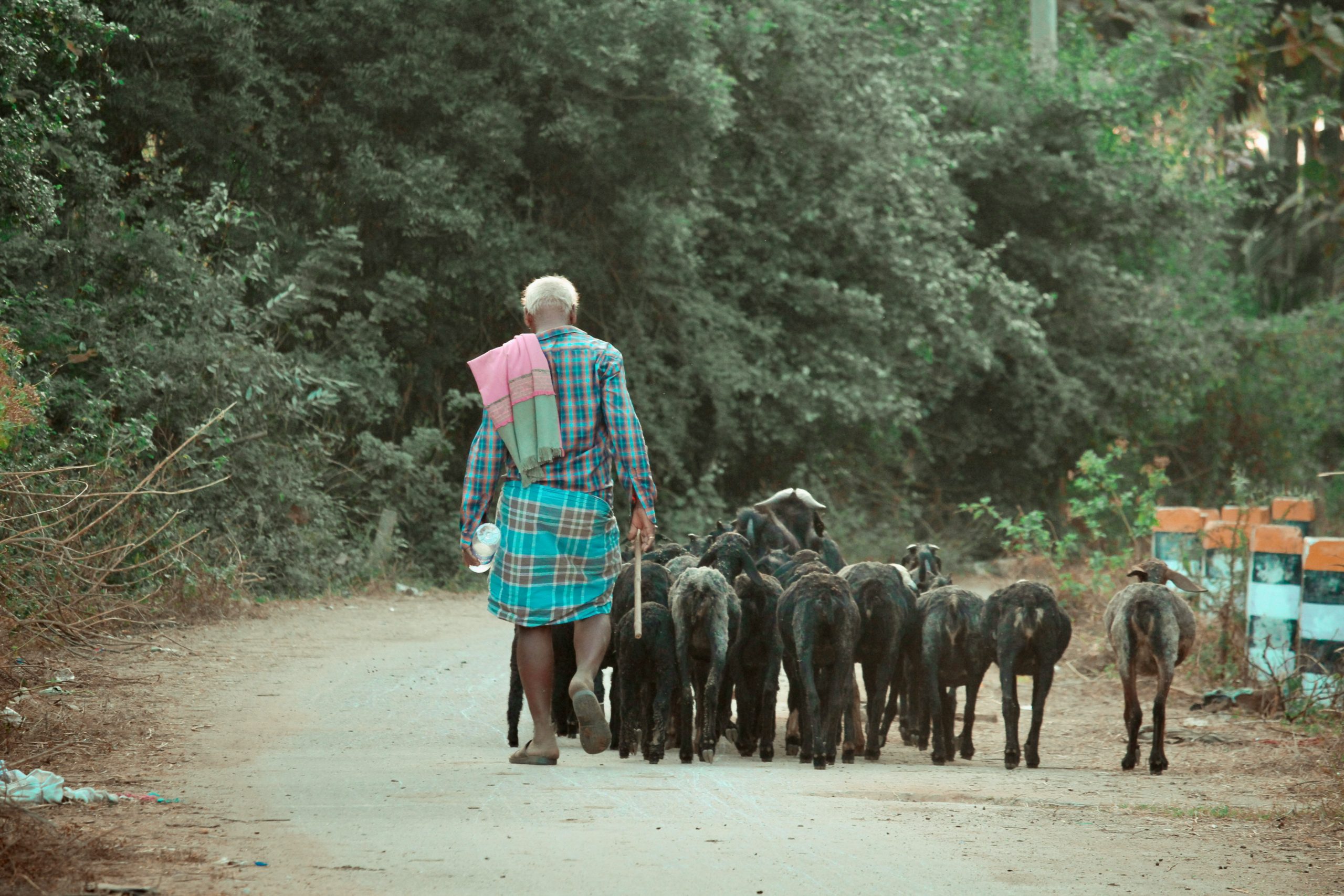Discover the untapped potential of agricultural tourism in the Middle East! Uncover unique experiences, cultural heritage, and off-the-beaten-path adventures waiting to be explored in this vibrant region. 🌿 #AgriculturalTourism #MiddleEastTravel
Opportunities for agricultural tourism in the Middle East

Agricultural tourism has been gaining momentum worldwide, with a strong emphasis on linking agriculture, gastronomy, and tourism. This form of tourism provides visitors with unique experiences related to farming, food production, and rural life, offering a deeper connection to local culture and traditions.
UNWTO Strengthening Links Between Agriculture, Gastronomy, and Tourism
The United Nations World Tourism Organization (UNWTO) has been actively promoting the connection between agriculture, gastronomy, and tourism. This synergy creates opportunities for agricultural tourism to flourish, especially in regions with rich agricultural heritage like the Middle East.
Agri-tourism Market Growth and Potential in the Middle East
According to market research, the agritourism market is projected to grow significantly in the coming years, with a potential increase of USD 8.84 billion by 2027. The Middle East, with its diverse landscapes and traditional farming practices, is well-positioned to tap into this market and attract agricultural tourists looking for authentic and immersive experiences.
Trailblazing Initiatives in the Middle East
Countries like Jordan and Saudi Arabia are leading the way in promoting agritourism as a means of sustainable rural development. By investing in agricultural and rural projects, these nations are not only preserving their agricultural heritage but also creating opportunities for tourism that benefit local communities.
Unique Farmstay Experiences in the Middle East
From serene farmstays in India to open farms in Sri Lanka, the Middle East offers a variety of farm experiences for agricultural tourists. These farmstays provide visitors with the chance to reconnect with nature, participate in farming activities, and savor fresh local produce.
Driving Economic Growth Through Agri-tourism
By leveraging their agricultural assets, countries in the Middle East can drive economic growth through agricultural tourism. This sustainable form of tourism not only generates revenue but also creates employment opportunities in rural areas, contributing to overall economic development.
Agricultural tourism presents significant opportunities for growth in the Middle East, with the potential to enrich local communities, preserve agricultural heritage, and provide authentic experiences for travelers. By investing in agri-tourism initiatives, countries in the region can unlock the full potential of their agricultural sector and create a unique value proposition for visitors seeking immersive and meaningful travel experiences.
diversification of agricultural activities

Agritourism allows farms to diversify and has potential benefits for rural communities. Rethinking farming in small island developing states reveals five major trends in Jamaican agriculture that can apply to agricultural tourism. Agri-Tourism provides sustainable livelihood through rural farm-based tourism in India.
Impact on Farming Communities
Agribusiness & Agritourism Review highlights the positive impact of agricultural tourism on farming communities. Farm visitors not only enjoy the experience but also contribute to increased farm profits. Nearly 40% of Welsh farms are diversifying, signaling that innovation is becoming a necessity for the industry.
Diversification Strategies
Farmers are looking to diversify their activities ahead of expected rule changes. Agritourism in Alberta foothills is expanding to diversify and share ‘passion and expertise.’ Guyana is set to see major improvements in agri-tourism with new Memorandum of Understanding (MoU) in place.
Benefits of Agricultural Tourism
- Diversification: Agricultural tourism offers farmers the opportunity to diversify their revenue streams by welcoming visitors and offering various activities.
- Sustainability: Farm-based tourism promotes sustainable practices and allows visitors to connect with the agricultural heritage of a region.
- Economic Growth: By attracting tourists, farms can boost their profits and contribute to the economic development of rural communities.
- Cultural Exchange: Agricultural tourism fosters cultural exchanges between visitors and local farmers, promoting understanding and appreciation of traditional farming methods.
With the increasing interest in agricultural tourism and the potential benefits it brings, farms around the world are exploring new ways to attract visitors, diversify their activities, and contribute to the sustainable development of rural areas.
utilization of traditional farming practices

diversification provides options for farmers
Agricultural tourism, a trending form of travel that bridges the gap between urban and rural lifestyles, is gaining popularity worldwide. In the context of traditional farming practices, this type of tourism offers a unique opportunity for farmers to diversify their income sources. By opening their farms to visitors and offering agritourism activities such as farm stays, farm tours, and local food experiences, farmers can supplement their traditional agricultural revenue.
a deep dive into integrated farming system for doubling farmers income in kashmir
In regions like Kashmir, where agriculture plays a vital role in the economy, the implementation of integrated farming systems can significantly impact farmers’ income. By combining traditional farming methods with modern agricultural practices, farmers can achieve higher productivity and income levels. Agritourism can further enhance this income by attracting tourists interested in experiencing authentic farming activities and local culture.
when tourism and sustainable agriculture make good bedfellows
The synergy between tourism and sustainable agriculture creates a win-win situation for both sectors. Sustainable farming practices not only preserve the environment but also attract environmentally conscious tourists looking for authentic and ethical travel experiences. By showcasing their commitment to sustainability, farmers can appeal to a growing segment of tourists seeking responsible tourism options.
use taiwan as an example and inspiration to boost agritourism in malaysia
Taiwan has successfully leveraged its traditional farming heritage to develop a thriving agritourism industry. By promoting Taiwanese agricultural practices and agritourism experiences, Malaysia can take inspiration to boost its own agritourism sector. Emphasizing the cultural significance of traditional farming practices can attract both domestic and international tourists interested in unique and immersive travel experiences.
snapshot of australian agriculture 2024 – daff
Australia’s agricultural sector continues to evolve, showcasing a blend of traditional farming techniques and modern advancements. As agritourism gains traction in Australia, farmers are tapping into this trend by offering farm stays, agricultural tours, and on-farm activities. This dynamic approach not only supports rural economies but also provides visitors with a deeper understanding of Australian agriculture.
18 serene farmstays to get back to nature in india
India’s diverse agrarian landscape offers numerous opportunities for agricultural tourism. With serene farmstays dotted across the country, travelers can immerse themselves in rural life, participate in farming activities, and savor farm-fresh meals. These farmstay experiences not only provide a tranquil escape from urban life but also contribute to the preservation of traditional farming practices.
tourism and land grabbing in bali
The intersection of tourism and agriculture can sometimes lead to challenges such as land grabbing, especially in popular tourist destinations like Bali. It is crucial to balance the growth of agritourism with land rights and sustainable land management practices. By promoting responsible tourism and engaging with local communities, agritourism can evolve as a sustainable and mutually beneficial endeavor.
biodiversity and the ecosystem approach in agriculture, forestry and fisheries
Preserving biodiversity is essential for sustainable agriculture and successful agritourism ventures. By adopting an ecosystem approach to farming, farmers can protect natural habitats, promote bio-diverse ecosystems, and offer unique ecotourism experiences. Highlighting the interconnectedness of agriculture, forestry, and fisheries can appeal to eco-conscious travelers seeking authentic and eco-friendly tourism options.
views: preserving traditional farming in malaysia
As Malaysia undergoes rapid modernization, the conservation of traditional farming practices becomes increasingly important. Embracing agritourism as a tool for preserving heritage agriculture can safeguard traditional knowledge, cultural identity, and rural livelihoods. By recognizing the value of traditional farming and promoting it through tourism, Malaysia can ensure the sustainability of its agricultural heritage for future generations.
skuast-k advocates smart pesticide use for sustainable agriculture
Promoting sustainable agriculture practices is key to the long-term success of agritourism. Institutions like SKUAST-K advocate for smart pesticide use to minimize environmental impact and protect public health. By adopting eco-friendly farming methods and educating visitors about sustainable practices, farmers can showcase their commitment to sustainable agriculture and attract conscientious tourists interested in supporting environmentally friendly initiatives.



